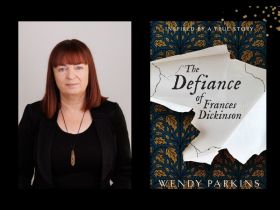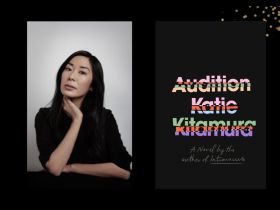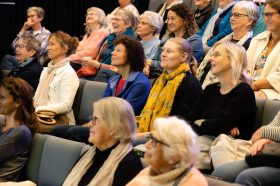A new breed of creative arts education is rising. Theory and high-minded critique is out, and in its place is the hands-on industry experience so frequently denied to aspiring creators. After all, what good is your extraordinary, brilliant, wildly creative idea if nobody hears it but you and your housemates?
Leading education providers are increasing their focus on practical skills, connecting with their industries and giving students professional experience.
‘At the end of the flagship courses we hold industry reading nights and we find there’s a great deal of goodwill in the industry towards our students – naturally senior editors of Allen & Unwin attend those events, but so do other publishers, and leading agents,’ said Kathryn Heyman of Faber Writing Academy, one of the institutions currently offering industry-leveraged creative education courses for budding writers.
Offering short courses across film, TV and radio, Wendy Gray, Head of AFTRS Open feels similarly, ‘All our lecturers are working industry professionals in their chosen specialisation, and we have hundreds of industry guests who speak at our courses. AFTRS Open students benefit from meeting and learning from hugely experienced practitioners and from making great contacts – which is what our industry is all about.’
Open Channel offers both training programs and industry attachments, giving students a much-needed boost into the professional realm with the support of existing leaders. ‘Open Channel’s mission is to connect early career and emerging screen creators to professional practise through professional development, events and networking … Being a not for profit, these courses are accessible and responsive to industry needs,’ said Cristina Pozzan posits, Acting Executive Director of Open Channel.
For those looking to polish their skills or hurriedly pick up some vital missing knowledge, Shillington College has comprehensive offerings in the fields of design flexible enough to suit modern time-poor schedules. Shillington has campuses all over the world, including Melbourne, Sydney and Brisbane where students are taught in an immersive, functioning studio environment to help them better come to grips with dense material.
Rahul Nath of JMC Academy is equally certain that their digital design course offerings will guarantee more than a dry books-and-pencils learning experience. ‘Internally we have initiatives such as ‘Make it With JMC’ where we hire JMC Digital Design students to produce work for various campaigns. We have our own publishing platforms on social media where we promote our students work. One of the best ways we support emerging creatives is with well… support. JMC Academy Digital Design has small classes, currently we have an average class of 12 with some as low as seven. Small classes allow students plenty of time with their lecturer.’
Suffice to say, if the only thing holding you back is not knowing where to start, considering a short course to get your project and yourself off the ground in one fell swoop.





